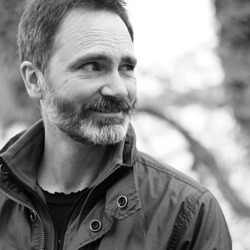Warning: Undefined array key "ssba_bar_buttons" in /home/robinder/public_html/wp-content/plugins/simple-share-buttons-adder/php/class-buttons.php on line 602
Warning: Undefined array key "ssba_bar_buttons" in /home/robinder/public_html/wp-content/plugins/simple-share-buttons-adder/php/class-buttons.php on line 602
Warning: Undefined array key "ssba_bar_buttons" in /home/robinder/public_html/wp-content/plugins/simple-share-buttons-adder/php/class-buttons.php on line 602
Warning: Undefined array key "ssba_bar_buttons" in /home/robinder/public_html/wp-content/plugins/simple-share-buttons-adder/php/class-buttons.php on line 602
Warning: Undefined array key "ssba_bar_buttons" in /home/robinder/public_html/wp-content/plugins/simple-share-buttons-adder/php/class-buttons.php on line 602
Warning: Undefined array key "ssba_bar_buttons" in /home/robinder/public_html/wp-content/plugins/simple-share-buttons-adder/php/class-buttons.php on line 602
Warning: Undefined array key "ssba_bar_buttons" in /home/robinder/public_html/wp-content/plugins/simple-share-buttons-adder/php/class-buttons.php on line 602
When I first got introduced to the world of OERs, I was skeptical. Despite being a pretty avid user of technology in my English courses, I have also generally been one of those intellectually whiny faculty members at my university who always throws a wrench into online initiatives by worrying (way out loud) that we haven’t done enough theorizing about the pedagogical implications of moving our teaching practices into the cyberworld. But the more I have learned about OER’s, and the more involved I have become in the world of open access activism, the more excited I feel about the possibilities. For me, it’s really not just about saving my students money, which is, of course, centrally important to me, given that I teach at a state school where most of my students do struggle to make ends meet. But the more I learn about open access licensing and the movement to bring research out from behind paywalls, the more I realize how much scholarship has to gain by going open: more interdisciplinary collaboration; more global access to knowledge and more cross-cultural conversation; more public benefits from university intellect; better peer-review protocols to improve research quality; the list is really impressive, and seems almost endless.
The place where I still get hung up is with MOOCs and badges. Ok, so as a closeted (not that closeted) Marxist, I totally love the idea of a MOOC. My politics tell me that free, open, (somewhat) accessible– these are all great qualities for a course. But I have some problems with the “massive,” and actually, with the “course” part. Research on MOOCs clearly shows that they aren’t serving the same purpose as more traditional college classes, and we can easily see that despite the hype, MOOCs have had a relatively small impact on the world of higher ed. I think the problem here is that even though MOOCs are “open” and “free,” they aren’t really engaging student learners with an educational experience the way traditional online or f2f college classes are.
At a recent OpenEd14 session on MOOCs, Jesse Stommel and Sean Michael Morris, the editors of Hybrid Pedagogy, posited that a MOOC is “not a thing at all; it’s a strategy.” They suggested that MOOCs are not “where we are going, it’s where we are beginning.” What I like about this is the way that they theorized the MOOC as a potential site of resistance and liberation. And though they share my skepticism about MOOCs as they are, they asked me to rethink what MOOCs could be– and what they could offer traditional educational environments– if we reimagined them less as courses and more as communities.
If a MOOC were a conversation, rather than a receptacle.
If all courses were conversations, rather than receptacles.
If students in MOOCs were not lost in a massive sea of consumers.
If students in all courses were creators, not consumers, of course content.
If best practices were rejected in favor of contextual practices, flexible practices, informed practices, the practice of bricolage.
If MOOCs had space for the unexpected epiphany.
If all courses could be opened to the unexpected epiphany.
The flaws that prevent many MOOCs from reaching student learners, and which hold them back from having a real impact on the institutional structure of education has less to do with MOOCs and more to do with the ways we confine our courses into “shells” that can’t stretch or shapeshift according to the ideas of participants. The problem with MOOCs is not a problem with “open,” but a problem with how we think about education in general. Maybe unlocking the potential of MOOCs can help us unlock the potential in many more kinds of “course delivery” as well.
In addition to some of my concerns on MOOCs, I also get uncomfortable when my OER work gets lumped in with the open badge movement. The idea of helping people articulate their skills for the job market or for any other reason–I’m all for it, of course. So what freaks me out? The breaking of knowledge into smaller and smaller particles– which can be easily identified by and reified into icons–is troubling. How can knowledge expand in new directions when the icon is pre-determined? How are courses limited by the ways in which they assert all of their learning outcomes before anyone has even enrolled? How “student centered” is a course that focuses on outcomes that are separate from student input? How does the reification of skills and knowledge into bits reinforce the limits of a university system that tends to siloize fields and separate information from non-academic stakeholders?
I think the ultimate idea for me is that there is nothing inherently wrong with a MOOC or a badge. But as things, these things are not open. In order to be open, we need to connect them more to process, to community, to the power and potential generated by people’s ideas as they work together. So I think going forward, I am going to stop with the anti-MOOC and anti-badge rhetoric, and instead start demanding that we all– myself included– try to think about how we can use new tools and platforms to proliferate the spirit of open, and how we can effectively critique the ways that some of these tools and platforms co-opt the rhetoric of open despite having some pretty closed effects on learning.










Hi, Robin — Great post. I too really liked @Jessifer’s and @slamteacher’s session from #OpenEd14.
I’m on the inside of the Open Badges world (as a developer, researcher, standards designer as well as Issuer, Earner, and Consumer of badges). Although I didn’t get as deeply into these issues as I’d have done with unlimited presentation time, the question of how the badges ecosystem can embody the philosophy of openness. My core thesis was that we should make sure that the software we build the Open Badges ecosystem with recognizes some of the open education community’s values like “learning happens in and builds a network” and “anyone should be able to define what achievements they value and participate in issuing credentials based on those values”. At Concentric Sky, we’re looking to build badge-aware software that lets anybody take on all of the core Open Badges roles (issuer, earner, and consumer) and participate as first-class citizens in building out the trust network made visible by Open Badges. I think that naturally follows the way we want students to have agency within their learning networks, and that this value hasn’t been present strongly enough in the badges ecosystem thus far.
I’d love to read or listen to more of your thoughts on this area, particularly as they pertain to my favorite technology right now. Cheers
Love this because it really changes what we mean when we use the term “Open Badges.” I think so far we haven’t really given teeth to the “open” part of that, and it sounds like the work you are doing does precisely that. Excellent! Sorry I missed your presentation at OpenEd. Do you have a slideshare or anything from that session?
http://www.slideshare.net/NateOtto/an-api-of-ones-own-realigning-the-open-badges-ecosystem-around-trust-open-education-conference-2014-opened14 Slides here, video eventually coming on the openedconference YouTube channel. #KeepBadgesWeird #KeepBadgesOpen
Very provocative, Robin. I think the early hyperbole around MOOCs (and the predictable backlash) have poisoned the well for many who might otherwise be working toward the kind of changes you suggest. The power of “free, open, and (somewhat) accessible” may, in fact, make MOOCs worth reimagining. They were not the game changers that their breathless supporters claimed in the beginning, but they may yet have that potential.
Badges, though…I’m not sure badges have an equivalent potential.